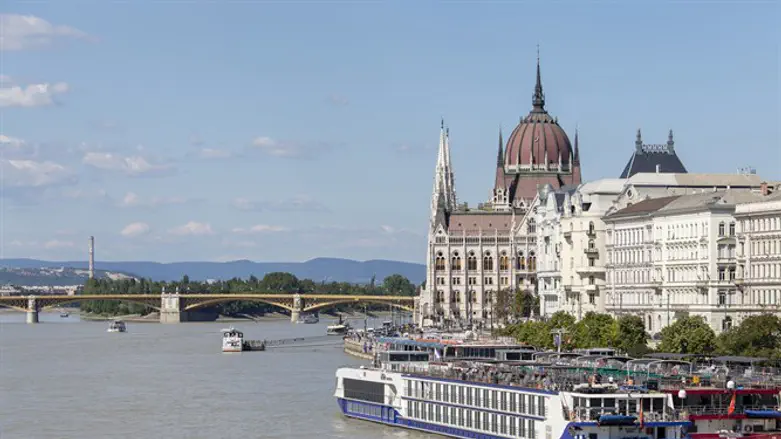
A former synagogue in Hungary’s capital city that had not been used as a place of worship in centuries reopened as a Jewish house of worship in a ceremony attended by the country’s president.
President János Áder attended the re-dedication and opening ceremony of Buda Castle Synagogue on Thursday as a guest of the Chabad-affiliated EMIH federation of Jewish communities, the organization said in a statement.
The synagogue on Táncsics Street, which used to be a Jewish museum, was opened especially in time for Rosh Hashanah, the Jewish new year.
Budapest, whose name is a mashup of the two parts of the city comprising the metropolis, has dozens of synagogues. But vast majority of them are in Pest, which is the bustling part of the city east of the Danube River. Placid and hilly Buda, by contrast, contains most of the city’s foreign embassies, many churches and museums. But it has only a handful of synagogues.
Buda used to have many more Jews before the Holocaust, but those who survived the genocide were all moved to Pest, with few returning to Buda. Some 100,000 Jews live today in Hungary, mostly in Budapest.
“Seeing this place 70 years after the Holocaust, seeing hundreds of people celebrating this special event in the Buda Castle with their heads held high, in the presence of the honorable president, I can hear the footsteps of Israel’s final redemption,” Rabbi Shlomo Kovesh, who heads EMIH, said during a speech at the ceremony. The newly dedicated synagogue will be led by the Budapest-born Rabbi Asher Faith.
The synagogue is situated near one of the main city gates, which was built in the Middle Ages and known as the Jewish Gate until this very day. It is also near the Hungarian National Gallery, which sits inside the Buda Castle Palace – an imposing structure that was built in the mid-13th century.
Also attending the ceremony was Dutch Chief Rabbi Binyomin Jacobs, who represented the Rabbinical Centre of Europe, an Orthodox umbrella body.